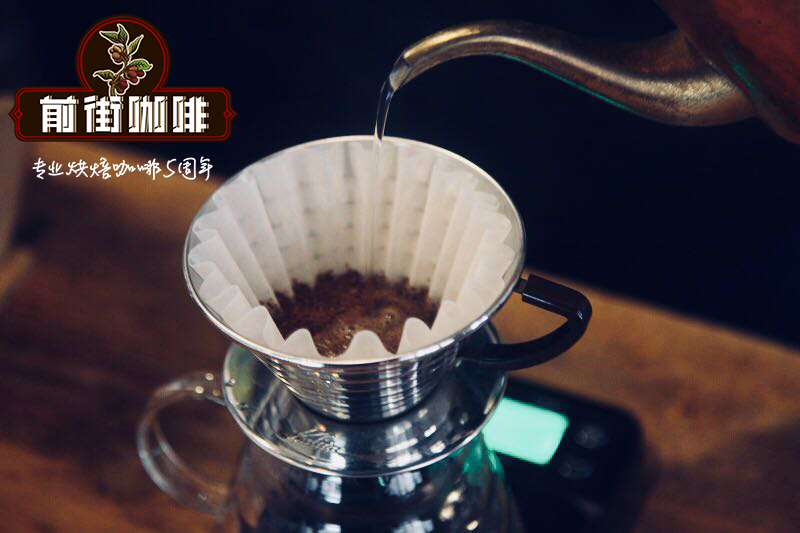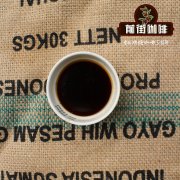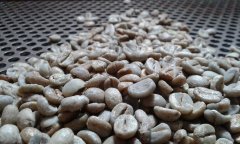The first COE in El Salvador, the first Kilimanjaro Manor, introduces the varieties planted in El Salvador.

Professional coffee knowledge exchange more coffee bean information please follow the coffee workshop (Wechat official account cafe_style)
Saguo coffee fruits are harvested only once a year, mostly from November to February of the following year. More than 60% of the varieties are bourbon strains. It is especially worth mentioning that Saguo is the most important country to grow Pacas and Pacamara. In addition, the coffee grading system in Saudi Arabia is basically divided into three grades according to the altitude of planting: lowland CS (500murm 900m), highland HG (900m Mel 1200m), and extremely highland SHG (1200m -).
When it comes to Salvadoran coffee, you have to talk to you about Aida Batlle, a legend in the boutique coffee industry.
Aida is from El Salvador, whose family business is a coffee farm that has been run for generations. When she was young, she and her family moved to Miami to live in the United States because of the Salvadoran civil war. She did not return to El Salvador until 2002. To help her father, she started as a complete novice in the family-run manor of Finca Kilimajaro, which won the first place in El Salvador's first COE in 2003, with a gold price of $14.06 / lb. at a time when the market price of coffee was low and less than a dollar a pound, it was incredible for them to be able to sell it at this price.
The title not only glorified her estate and the Santa Ana producing area, but also led to a wave of boutique coffee throughout El Salvador.
Since this crucial year, Aida has been more rigorous in managing farm affairs and has set up its own processing plant to produce the highest quality micro-batches. In addition to the traditional treatment methods, she has also made reference to many different countries such as Kenya, Ethiopia, Sumatra wet stripping treatment, etc., and incorporated innovation into her experimental batches. As Aida's estate is so popular that its output always exceeds demand, in order to meet more customer demand, she began to cooperate with the local J. Hill Y CIA processing plant with a history of more than a century in 2009 to launch Aida selected batch Aida Batlle Selection (ABS) to select local estates that produce high-quality coffee and assist and guide them in the process of planting, picking, post-processing and so on. And personally supervise and check whether the production quality is up to the standard, after the cup test, the flavor can reach her required batches before it can be exported in the name of ABS.
Important Notice :
前街咖啡 FrontStreet Coffee has moved to new addredd:
FrontStreet Coffee Address: 315,Donghua East Road,GuangZhou
Tel:020 38364473
- Prev

What is the green owl coffee in the Borha Manor of El Salvador? Salvadoran coffee grading system?
For more information on coffee beans, please follow the Coffee Workshop (official Wechat account cafe_style) El Salvador, the smallest and most densely populated country in Central America, has been growing coffee since 1740, according to the relevant literature. The land area of growing coffee accounts for about 8% of the country. Dazhi is divided into five main producing areas, namely Apaneca and Centra.
- Next

COB: a complex evolutionary history of the official grading system for raw coffee beans in Brazil
For more information on coffee beans, please follow the Coffee Workshop (Wechat official account cafe_style) cob: the complex history of the official classification system in Brazil the origin of cob sensory analysis has provided an important mechanism for pricing goods around the world since the beginning of trade. Color, smell and taste are one of many attributes used to grade a wide range of food and agricultural products.
Related
- Detailed explanation of Jadeite planting Land in Panamanian Jadeite Manor introduction to the grading system of Jadeite competitive bidding, Red bid, Green bid and Rose Summer
- Story of Coffee planting in Brenka region of Costa Rica Stonehenge Manor anaerobic heavy honey treatment of flavor mouth
- What's on the barrel of Blue Mountain Coffee beans?
- Can American coffee also pull flowers? How to use hot American style to pull out a good-looking pattern?
- Can you make a cold extract with coffee beans? What is the right proportion for cold-extracted coffee formula?
- Indonesian PWN Gold Mandrine Coffee Origin Features Flavor How to Chong? Mandolin coffee is American.
- A brief introduction to the flavor characteristics of Brazilian yellow bourbon coffee beans
- What is the effect of different water quality on the flavor of cold-extracted coffee? What kind of water is best for brewing coffee?
- Why do you think of Rose Summer whenever you mention Panamanian coffee?
- Introduction to the characteristics of authentic blue mountain coffee bean producing areas? What is the CIB Coffee Authority in Jamaica?

